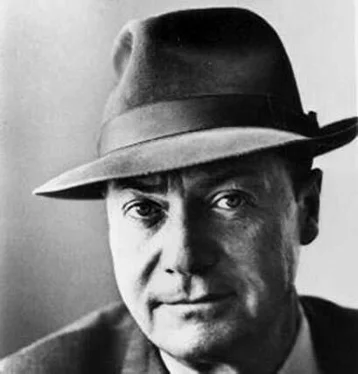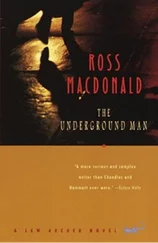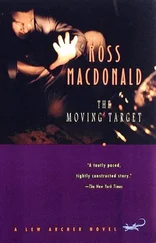“What happened, Colonel?”
“I killed a man. I shot him.”
“Why?”
“I hardly know. I’d never seen the man before.” He turned to face me and the growing light. His small eyes glared with pain. “I’ve killed a man, and wrecked my own life, without any clear reason.”
He wept dry-eyed, gasping and shuddering, then covered his ugly face with ten hooked fingers. Partly to spare his pride, I carried my clothes into the kitchen, dressed there, and made coffee. I took him a mug of it, heavily spiked with Bushmills. He was standing at the glass door, stiff and calm-faced. His eyes were on the breaking line of the surf.
I handed him his coffee. “Compliments of the management.” But neither of us succeeded in cracking a smile.
He took the cup and held it without a tremor. His face was like granite. His voice was like granite speaking:
“I made you an ugly scene there. I have to apologize. I had no idea I had such weakness in me.”
“People do, you know. You look as though you’ve had a rough night.”
“I have had rougher, but I’ve never before killed a man, in civilian life. It came as rather a shock to me, that I was capable of it.”
“Do you want to go into it now?”
“I must.” He sipped from his mug, still standing up, and watching me over the rim. “I do owe it to myself to say one thing at the start. I did have a reason for killing him. It seemed adequate at the time. He was threatening a woman – threatening to maltreat her.”
“What woman?”
“An actress, Molly Day. At least she claimed that that was her name. It’s rather an unlikely name.”
“She’s an unlikely woman.”
“Have you heard of her?”
“Everybody in the United States has heard of her.”
“I’m not a filmgoer.”
“So I gather. How did you get mixed up with Molly Day?”
Ferguson sat down and told me.
He’d had trouble going to sleep the night before. After he’d turned out the light in the studio, he’d noticed a light on the far side of the canyon. It shouldn’t have been there, because his friends the Trumbulls owned the entire canyon, and so far as he knew they were still in Europe.
He explained about the Trumbulls. He’d met them in London through their son George, the painter. Ferguson himself was an art collector in a small way. When he’d completed his recent tour as attaché at Canada House, George and his parents had insisted that he spend at least part of his leave at their place in California. If he didn’t want the trouble of opening up the big house, he was welcome to use George’s studio on the other side of the canyon.
Having taken up the Trumbulls’ suggestion, Ferguson naturally felt an obligation to see that their house had not been invaded by vandals. The possibility wouldn’t let him sleep. He got up and pulled back the drapes over the window. The light he’d seen, or thought he’d seen, was no longer visible. The Trumbull house was a black bulk diminished by distance, half hidden by trees, unbroken by any light.
It had probably been a trick of the eye, or a flash of moonlight reflected from a window. There was a moon in the sky, enlarged and blurred by clouds. Its light fell on the trees that filled the deep canyon, and lent their leaves a silvery aspen appearance. Ferguson was struck by the beauty and peace of the night. It was so still that the gurgle of the creek came up from a quarter of a mile below, as clearly as though it was lapping at the cantilevers of the studio.
George Trumbull had left a deer rifle hanging above the studio fireplace, and Ferguson had noticed that it had a telescopic sight. When he trained it on the Trumbull house, he saw the light again, a thin spillage of brightness from a blinded window on the second-floor level. The brightness was white and steady: at least the place wasn’t burning. But somebody was in it who had no right to be there.
Carefully drawing the drapes again, so as not to alarm the housebreakers, Ferguson turned on the light and looked up the emergency number of the county police. Then he changed his mind. Perhaps the Trumbulls had come back unexpectedly by plane. His own jet flight from London had whisked him to Los Angeles in what seemed no time at all. If the Trumbulls had come home, they wouldn’t thank him for inviting the authorities to their homecoming.
He dialed their number instead of the police number. A man answered immediately, as if he had been waiting with his hand on the receiver:
“Hello.”
“May I speak to Mr. Trumbull?”
“Sorry, but there’s no such person here.”
“Are you the Trumbull caretaker?”
“Hardly. I don’t know the Trumbulls, whoever they are. I’m afraid you have the wrong number.”
The man’s voice was persuasive, and cultivated, as American voices went. Ferguson hung up, checked the number in the telephone directory, and called it again. The same voice answered, as quickly and more sharply:
“Yes?”
“There seems to be something out of kilter,” Ferguson said. “I keep calling the Trumbulls’ number and getting you.”
“So you do. Would you mind stopping, please? I’m expecting a call.”
There was a whining note of impatience in the man’s voice. It irked Ferguson, for some reason. He said brusquely:
“Who am I talking to?”
“I was about to ask you the same question.”
Ferguson gave his name, prefixed by his rank. The voice at the other end of the line became more genial:
“I’m afraid I can’t explain the mixup, Colonel. What number are you calling, anyway?”
“23799.”
“This is 23788,” the man said. “Evidently your dialing system is faulty. If I were you, I’d report it to the telephone company in the morning.”
Ferguson said that he would, apologized shortly, and hung up for the second time. He crawled into bed. Sleep was more remote than ever. He’d forgotten to close the drapes. The moon had broken free from the clouds and leered down through the window at him. Like a platinum blonde street-walker with acne, he said. His nerves were getting snappish. The sound of the creek burbled up out of the darkness, irritating as tea-party voices.
Then a dog howled at the moon. He sat up in bed. The sound was repeated, once, and he realized that no canine throat had emitted it. It had been a human cry, the cry of a woman, raised twice across the canyon. Its tiny repeated echoes sounded like laughter, and merged with the inane chuckling of the creek.
There were shells for the deer rifle in a box under one of the window seats. His absent host had told Ferguson where to find them, in case he wanted to try some target shooting. He loaded the rifle and carried it to the window. Crossed by the hairlines of the sight, the light was still burning on the second floor of the Trumbull house. He estimated the distance at a thousand yards. It would be interesting to discover if he could shoot out the window at that distance, and what the effect would be. While he was toying with this cheerful thought, the light went out.
Ferguson was obscurely alarmed by his casual readiness to fire the rifle. He had a queer feeling that Southern California was dream country, in which the normal standards of civilized behavior did not apply. To guard against the consequences of this irresponsible feeling, he deliberately put the rifle back where it belonged above the fireplace. He felt capable of handling any situation that might come up, without the use of firearms. He pulled on his clothes and went out to his rental car.
The Trumbulls and their son, by mutual agreement, had left uncleared the deep wooded gorge between the studio and the main house. Ferguson had no inclination for a midnight scramble through undergrowth. In order to reach the main house by car, he had discovered several days before, he had to drive four or five miles down the canyon to the point where the private road debouched on Cabrillo Highway above Malibu. A mile north of this point, a second private road began its climb up the other side of the canyon to the main house.
Читать дальше












